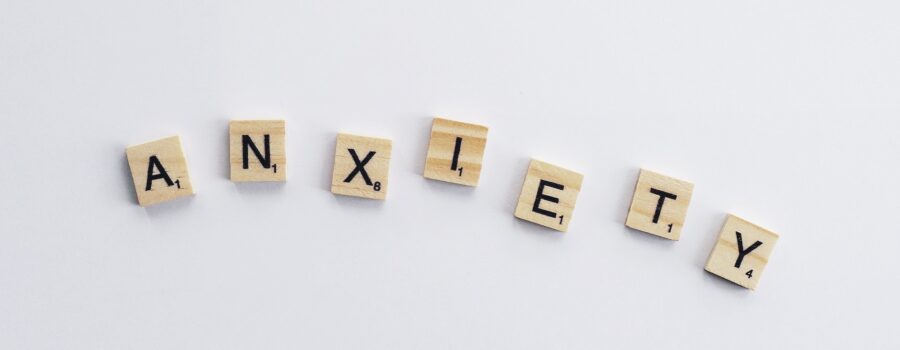It’s tricky. Because we use the words “anxious” and “anxiety” interchangeably, you might feel like you have anxiety any time you feel nervous or worried. Technically, though, anxiety is also a diagnosable mental health condition. There are a bunch of different types of anxiety disorders, and they each affect you differently.
So, how do you know if the worry or stress you’re feeling is normal, and how do you know if it’s a mental health condition? We’ve built this guide to show you how to identify anxiety.
We hope that with this in hand, you’ll be able to more clearly understand what you’re feeling. That way, you can get treatment if/when it will help you.
The difference between stress and anxiety
In some ways, anxiety disorders and stress are fairly similar. They might even physically impact you the same way, causing a rising heart rate or increased sweating.
But stress is a short-term reaction on your body’s part. (That said, you can be in a state of chronic stress.) The stress usually comes as a direct result of a past, present, or future incident or worry. Basically, stress is how you respond.
Anxiety disorders, on the other hand, are mental health conditions that last for an extended period of time and interfere with your quality of life. Like stress, symptoms from anxiety disorders might be triggered by certain events or activities. But unlike stress, the response is disproportional and the effects can last. And some people feel anxiety without being able to pinpoint a cause, too.
Generally, there are two primary things that set anxiety apart from stress. The first is excessive anxiety. A little anxiousness about an upcoming deadline is normal. So much nervousness or worry that you feel paralyzed or overwhelmingly fearful could indicate you’re living with an anxiety disorder.
The second characteristic of anxiety disorders is that they last. If you’ve felt excessive anxiety more days than you haven’t in the last six months, you might be living with generalized anxiety disorder.
Symptoms of anxiety disorders
Different anxiety disorders come with different symptoms. That said, there are a few symptoms that affect most people with anxiety disorders. So you know how to identify anxiety, we wanted to list a few of them here.
- Worry, restlessness, or tension you feel you can’t control
- Irritability
- Fatigue, often paired with feeling weak
- Trouble sleeping
- Increased heart rate
- Increased sweating
- Trembling
- Trouble breathing
- Trouble concentrating or your mind going blank
- Gastrointestinal problems
- Avoidance of things that stress you out, including social situations
This guide can help you know how to identify anxiety, but you don’t have to figure this out alone. Talk to a mental health professional to get support on this journey and help handling your feelings of stress or worry.
If you think you might be living with an anxiety disorder — or you’re facing any other mental wellness challenges — we’re here to help. At the Ventura Counseling & Wellness Center, we’re offering telehealth appointments with our dedicated team. To learn more or to schedule a call with one of us, contact us today.





